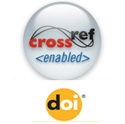|


Bu eser Creative Commons Atıf 4.0 Uluslararası Lisansı ile lisanslanmıştır. .
|
|
|
|
Yazar
|
:
Ümit YILDIZ
& Gülsüm SERTOĞLU
|
|
|
Türü |
:
|
|
Baskı Yılı |
:
2019
|
|
Sayı |
:
41(1)
|
|
Sayfa |
:
1094-1122
|
|
DOI Number: |
:
|
| Cite : |
Ümit YILDIZ & Gülsüm SERTOĞLU, (2019). ESNAF TABELALARINDA YABANCI KELİME DAĞILIMI ÜZERİNE BİR ÇALIŞMA: FETHİYE ÖRNEĞİ. Route Education and Social Science Journal , 41(1), p. 1094-1122. Doi: 10.17121/ressjournal.2113.
|
|
1698 1479
|
Özet
Bu betimsel çalışmada Muğla ili, Fethiye ilçesi sınırları içerisinden seçilen 4 bölgede yer alan işletme tabelalarındaki yabancı kelime dağılımını belirlemek amaçlanmaktadır. Araştırmada, birinci bölge olarak Fethiye Merkez (95. Cadde, Paspatur Çarşısı, Fethiye Kordon), ikinci bölge olarak Karaçulha Mahallesi, üçüncü bölge olarak Çalış Plajı ve çevresi, dördüncü bölge olarak da Ölüdeniz Mahallesi ve Hisarönü/Ovacık Bölgesi seçilmiştir. Yabancı kelimeler, Türkçeyi hem yazı dili hem de konuşma dili bağlamında olumsuz şekilde etkilemektedir. Bu nedenle, tabelalarda yabancı kelime kullanım oranına ve işletme sahiplerinin tabelalarında yabancı kelime tercih etme sebeplerine yönelik bilimsel çalışmaların gerekliliği daha da önem kazanmaktadır. Çalışmada örneklem seçilirken, turistlerin yoğun olarak ziyaret ettikleri bölgelerin yanında, doğrudan gezi rotasında olmadığı için nispeten daha az ziyaret ettikleri bölgelere de yer verilmiştir. Böylece, turistlerin yoğun olarak ilgi gösterdiği yerler ile nispeten daha az ziyaret ettikleri yerler arasında karşılaştırma yapılması amaçlanmıştır. Araştırma, nitel ve nicel veri toplama tekniklerinin bir arada kullanıldığı karma desenli bir çalışmadır. Araştırma kapsamında ilk olarak yabancı dillerin etkisinin görüldüğü ve görülmediği tabela isimleri betimsel tarama yoluyla derlenmiştir. Derlenen isimler bir havuzda toplanmış ve araştırmacılar tarafından ayrıntılı bir şekilde incelenip kategorilere ayrılmıştır. Çalışmanın ikinci etabında ise ulaşılabilen ve araştırmaya gönüllü olarak katkı sağlamak isteyen 10 esnaf belirlenmiştir. Belirlenen esnaflarla yüz yüze görüşmeler yapılmış ve 10 soruluk bir sormaca yardımıyla; tabelalarındaki isimleri tercih etme sebepleri, seçtikleri isimlerin avantajları/dezavantajları ve tabelalarda yabancı kelime kullanımı hakkındaki görüşleri bağlamında veriler toplanmıştır. Sınırlı bir ölçekte ele alınan bu çalışmanın sonuçlarının; Türkçenin yabancı dillerle etkileşiminin boyutunu ve bu konuyla ilgili ne gibi çalışmalar yapılabileceğini belirlemede alana katkı sağlaması umulmaktadır. Çalışmada elde edilen verilerle, tabelalarda kullanılan kelimelerin dağılımı ve esnafların isim tercihlerini etkileyen faktörler ortaya konmaya çalışılacaktır. Araştırma sonuçlarına göre, turizm faaliyetlerinin yaygın olduğu Fethiye Merkez (95. Cadde, Paspatur Çarşısı, Fethiye Kordon), Çalış Plajı ve çevresi, Ölüdeniz Mahallesi ve Hisarönü/Ovacık Bölgelerinde yer alan tabela isimlerinde, yabancı kelimeler daha sık kullanılmaktadır. Turizm faaliyetlerinin nispeten daha az olduğu Karaçulha Mahallesinde ise tabela isimlerinin genellikle tamamen Türkçe kelimelerden oluştuğu görülmektedir. Diğer taraftan işletme sahipleri; tabelalarında kullandıkları kelimeleri belirlemede işletmelerinin konumunun etkili olduğunu, turistik bir bölgede bulundukları için yabancı kelimelerin çok daha akılda kalıcı olduğunu, tabelalarda yabancı kelime kullanılmasına karşı olmamakla beraber Türkçe kelime kullanılması fikrini desteklediklerini ifade etmiştir.
Anahtar Kelimeler
Tabelalarda yabancı kelime kullanımı, Fethiye esnaf tabelaları, yabancı dillerin etkisi.
Abstract
The purpose of this study is to determine the distribution of foreign words in the names of workplaces in four regions in Fethiye, Muğla. The first region is Fethiye centre (95. Street, Paspatur Bazaar, Fethiye Cordon); the second region is Karaçulla district; the third region is Çalış Beach and its surroundings; Ölüdeniz and Hisarönü/Ovacık districts are the fourth region. Considering that those words negatively affect Turkish in the context of both written language and spoken language, the necessity of scientific studies on the use of foreign words in signboards and the reasons for preferring foreign words in the signboards of tradesmen become even more important. The sample of this study consists of workplaces in four regions which were selected through extreme or deviant case sampling technique. While selecting the sample, the regions which the tourists did not visit a lot as well as the ones which were intensively visited by the tourists were also included. It is thought that this situation will be important in terms of making comparisons between regions. The study is a mixed pattern study in which both qualitative and quantitative data collection techniques are used together. In the scope of the research, the names of the signboards, in which the effects of foreign languages were seen and not seen, were compiled by descriptive scanning. The names were collected in a pool and examined by the researchers in detail and divided into categories. It is planned to collect qualitative data in order to support the quantitative data in the study. In this context, this study adopted mixed method research design in which both quantitative and qualitative data are collected. In the second phase of the study, 10 tradesmen who are easily accessible and volunteer to take part in the study were selected. Through face-to-face interviews and a 10-question inquiry, it was sought an answer to the following questions: the reasons for choosing the names in their signboards, the advantages/disadvantages of the names they have chosen and their views on the use of foreign words in signboards. It is thought that the results of this study may contribute to the field in determining the extent of the interaction of Turkish with foreign languages and what further studies can be carried out in this field. It is believed that the results may contribute to the studies which are conducted to determine the effect of foreign languages on Turkish, the distribution of words used in the names of workplaces and the factors affecting workplace name preferences of tradesmen. The results obtained from the study show that foreign words are more frequently used in the signboards of workplaces in regions where tourism activities are common. In Karaçulha District where tourism activities are relatively less, signboard names of workplaces generally consist of Turkish words. Besides, acording to the results of the study, the shop owners are in favor of using Turkish words in the signboards of workplaces.
Keywords
Use of foreign words in signboards, Fethiye tradesmen signboards, effect of foreign languages.
|
|
